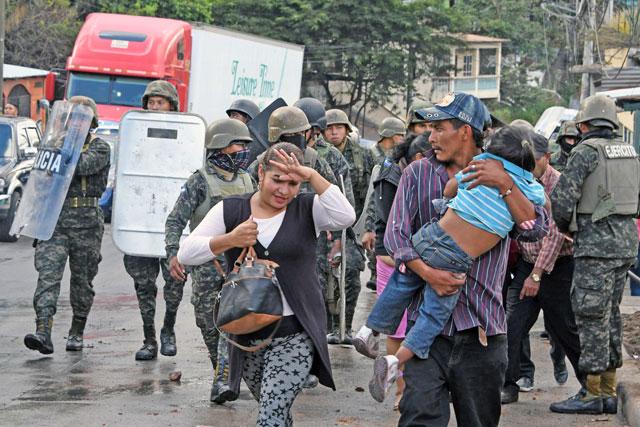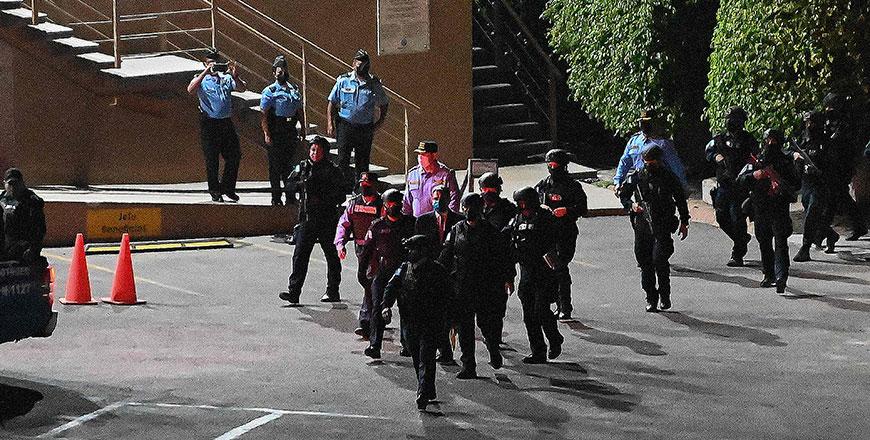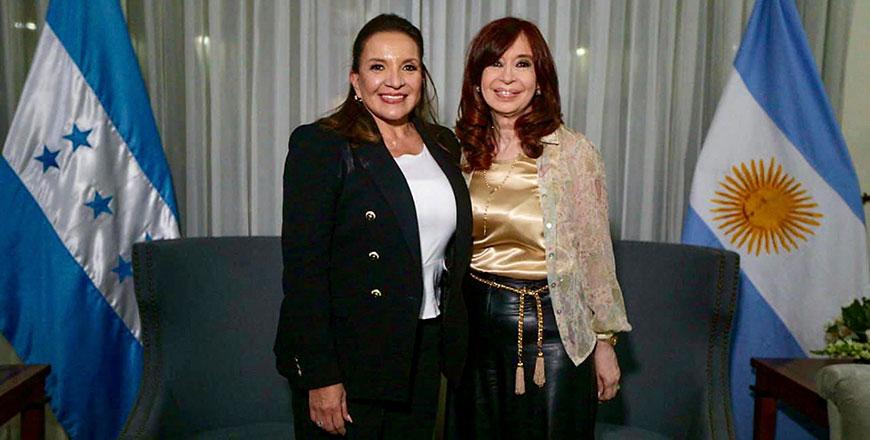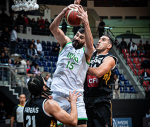You are here
Honduras poll crisis widens with police revolt
By AFP - Dec 05,2017 - Last updated at Dec 05,2017
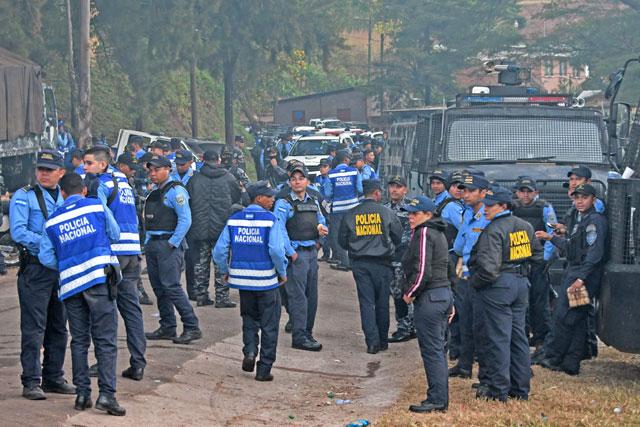
Members of Honduras national police stand outside their headquarters as they refuse to crack down on demonstrators in Tegucigalpa on Tuesday (AFP photo)
TEGUCIGALPA — A political crisis in Honduras triggered by a disputed presidential election deepened on Tuesday, after hundreds of police revolted against an order to impose a curfew.
The police, many of them members of an anti-riot unit called the "Cobras" joined by other officers, went into the street in the capital Tegucigalpa late Monday to show their rejection of the order. Locals applauded their presence.
"The truth is we don't want to fight the people anymore," one of the officers said, declining to give his name and his face hidden by a ski mask.
The rebellion signals a potentially dangerous new turn in the crisis that has unfolded since the November 26 vote in which President Juan Orlando Hernandez controversially sought reelection.
His bid was made possible by a 2015 supreme court ruling overturning a constitutional ban on more than one presidential term — a decision that sparked criticism.
But a TV-presenter-turned-politician picked as the leftwing opposition's candidate, Salvador Nasralla, 64, caused an upset in the election.
Initially, Nasralla emerged with an early lead, but that was whittled down and then reversed after a much-delayed counting of ballots that the opposition alleged was marred by fraud.
As protests turned violent and pillaging was reported, Hernandez's government last week ordered a state of emergency with a nighttime curfew.
A teenage girl was killed in one clash, her family said, blaming the police who responded by saying they were investigating.
The rebellion by some of the police showed Hernandez's authority could be crumbling.
'No more blood'
If that is the case, Honduras — a small Central American nation of 10 million beset by gang violence, corruption and poverty — could be in the grips of its worst crisis since 2009, when then-president Manuel Zelaya was ousted in a coup.
"What we are demanding is that peace return, that the problem be resolved and that there are no more deaths, no more blood," the police officer in the ski mask told AFP.
The public safety minister, however, downplayed the police row, calling it part of a dispute over pay and Christmas bonuses.
On Monday, Honduras' Supreme Electoral Tribunal said the final ballot count showed Hernandez with 42.98 per cent of the vote, barely ahead of Nasralla with 41.39 per cent.
But it declined to name an election winner, saying appeals could yet be lodged.
Nasralla told AFP he "cannot accept anything", and refused to recognise the tribunal's count.
A coordinator for a group of European Union poll observers, Marisa Matias, urged the tribunal to hold off on naming a winner, saying "the electoral process is far from finished".
The head of the mission from the Organisation of American States, Jorge Quiroga, also highlighted the narrow margin given between Hernandez and Nasralla, as well as "irregularities" in the election.
Going into the election, Hernandez, a 49-year-old lawyer, enjoyed implicit backing from the United States, which is pouring $750 million into Central America's so-called Northern Triangle — the poor, gang-infested trio of nations made up of Honduras, El Salvador and Guatemala — to try to stem migration from the region into the US.
Related Articles
TEGUCIGALPA — The president of Honduras declared himself reelected on Tuesday despite calls by his opponent and the Organisation of American
TEGUCIGALPA — A judge in Honduras granted the extradition of former president Juan Orlando Hernandez to the United States, where he is want
TEGUCIGALPA — Xiomara Castro will be sworn in Thursday as the first woman president of Honduras, which is grappling with poverty, migration


